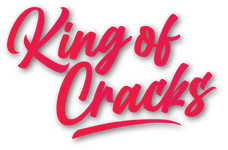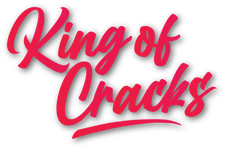|
Back pain is a prevalent condition that affects millions of individuals worldwide. Traditionally, opioids have been prescribed as a primary treatment option for managing back pain. However, due to concerns regarding addiction rates and the potential for dependency, alternative approaches have gained recognition. In this blog post, we will explore the various medications and treatment options available for back pain relief, including steroid injections, and compare them to the use of chiropractic alternative healthcare. Let's delve into the alternatives to opioid use for back pain and shed light on addiction rates and chances of dependency.
Medications and Treatment Options
Chiropractic Alternative Healthcare In recent years, chiropractic care has gained popularity as a non-pharmacological alternative for managing back pain. Chiropractors focus on diagnosing and treating mechanical disorders of the musculoskeletal system, particularly the spine. Treatment techniques commonly used by chiropractors include spinal adjustments, soft tissue therapies, and exercises. Chiropractic care aims to address the root cause of back pain by restoring proper alignment and function of the spine, reducing nerve interference, and promoting overall musculoskeletal health. Studies have shown that chiropractic care can provide relief for certain types of back pain, particularly those related to the musculoskeletal system. Addiction Rates and Chances of Dependency One of the primary concerns associated with opioid use for back pain is the risk of addiction and dependency. Opioids can provide effective pain relief, but they also carry a significant risk of abuse and addiction. Prolonged opioid use can lead to tolerance, meaning higher doses are required to achieve the same level of pain relief. This can increase the risk of dependence and addiction. In contrast, alternative approaches such as chiropractic care have a much lower risk of addiction or dependency. Chiropractors focus on improving the body's natural ability to heal and restore balance without relying on medications that can lead to adverse effects or addiction. When it comes to managing back pain, it is crucial to explore a range of treatment options beyond opioids. Medications such as NSAIDs, acetaminophen, and muscle relaxants can provide relief for mild to moderate back pain, although they should be used judiciously and with caution due to potential side effects. Steroid injections can offer short-term relief for severe back pain, but they carry risks and should be administered by trained professionals. Chiropractic alternative healthcare, on the other hand, provides a non-pharmacological approach to back pain management. By addressing the underlying mechanical issues and restoring proper spinal alignment, chiropractic care aims to alleviate pain and improve overall musculoskeletal health. This approach has shown promise in providing relief for certain types of back pain, particularly those related to the musculoskeletal system. When comparing the addiction rates and chances of dependency, opioids pose a significant risk. The potential for tolerance, dependence, and addiction associated with long-term opioid use makes them a less desirable option for managing chronic back pain. In contrast, chiropractic care carries a much lower risk of addiction or dependency, as it focuses on natural healing and restoration of the body's balance. It is important to note that each individual's experience with pain and response to treatment can vary. Therefore, a personalized approach in consultation with healthcare professionals is crucial to determine the most suitable treatment plan for managing back pain. In conclusion, alternative options to opioid use for back pain, including medications such as NSAIDs, acetaminophen, muscle relaxants, and chiropractic alternative healthcare, offer viable alternatives that can provide relief and improve the quality of life for individuals suffering from back pain. By considering these alternatives, we can reduce reliance on opioids and minimize the risks associated with addiction and dependency while promoting holistic healing and well-being. Always consult with healthcare professionals to determine the most appropriate treatment approach for your specific condition. Keywords: alternative options, back pain relief, non-opioid treatments, chiropractic care, steroid injections, medications, addiction rates, dependency, non-pharmacological approaches, natural remedies, chronic back pain, opioid-free management. References:
Disclaimer: This blog post was created with the assistance of AI and online article references and is intended for informational purposes only. It should not be considered as medical advice or a substitute for professional medical guidance, diagnosis, or treatment. It is essential to consult qualified healthcare professionals for personalized advice regarding specific conditions. The authors and publishers do not guarantee the accuracy or completeness of the information and will not be held liable for any actions taken based on the content of this article.
1 Comment
Magnesium citrate is a mineral that plays an essential role in the human body's various functions, including nerve function, muscle contraction, and the maintenance of a healthy heart rhythm. It is also involved in more than 300 biochemical reactions in the body. Unfortunately, many people do not get enough of this crucial nutrient in their diet, leading to a host of health issues.
In this post, we will discuss the health benefits of magnesium citrate and how to include it in your diet.
High blood pressure, also known as hypertension, is a leading risk factor for heart disease and stroke. Studies have shown that magnesium citrate can help regulate blood pressure levels by relaxing the blood vessels and improving blood flow. In one study, taking 450 mg of magnesium citrate daily for eight weeks resulted in a significant reduction in both systolic and diastolic blood pressure levels.
Magnesium citrate is essential for maintaining a healthy heart rhythm and preventing heart disease. It helps to regulate heart muscle function, maintain healthy blood vessels, and prevent the accumulation of plaque in the arteries. Additionally, low magnesium levels are associated with an increased risk of cardiovascular disease.
Magnesium citrate is critical for maintaining healthy bones. It plays a crucial role in the development and maintenance of bone tissue and helps to regulate calcium absorption. Low magnesium levels have been linked to an increased risk of osteoporosis, a condition that weakens bones and increases the risk of fractures.
Magnesium citrate has a calming effect on the nervous system, which can help reduce stress and anxiety levels. It helps to regulate neurotransmitters, including serotonin, which plays a significant role in mood regulation. Studies have shown that low magnesium levels are associated with an increased risk of depression and anxiety.
Magnesium citrate can improve sleep quality and help individuals who suffer from insomnia. It helps to regulate melatonin, a hormone that regulates sleep-wake cycles. In one study, taking magnesium citrate supplements improved sleep quality in older adults. Foods Rich in Magnesium While supplements can help boost your magnesium levels, it's also important to consume magnesium-rich foods. Foods that are high in magnesium include:
By incorporating these foods into your diet, you can increase your magnesium intake and reap the many health benefits that this mineral has to offer. Conclusion Magnesium citrate is a vital mineral for our bodies, and many people do not get enough of it in their diet. By consuming magnesium-rich foods or taking supplements, you can experience the remarkable health benefits of magnesium citrate, including regulating blood pressure, promoting heart health, supporting bone health, reducing stress and anxiety, and improving sleep quality. Keywords: magnesium citrate, health benefits, diet, nutrition, magnesium-rich foods, supplements. References:
Disclaimer: This blog post was created with the assistance of AI and online article references and is intended for informational purposes only. It should not be considered as medical advice or a substitute for professional medical guidance, diagnosis, or treatment. It is essential to consult qualified healthcare professionals for personalized advice regarding specific conditions. The authors and publishers do not guarantee the accuracy or completeness of the information and will not be held liable for any actions taken based on the content of this article. |
AuthorMy name is Jimmy Sayegh, DC, and I am a licensed chiropractic physician with over 10 years of experience. I believe that optimal health and wellness require a combination of factors, including exercise, a healthy diet, and routine chiropractic care. In my experience, regular exercise is essential for maintaining good health, as it can improve cardiovascular health, reduce the risk of chronic diseases, and help maintain a healthy weight. A balanced and nutritious diet is also crucial for optimal health, providing the body with essential nutrients needed for optimal functioning. In my blog posts, I will be sharing research articles and information that I have gathered over the years. All of my blogs are complied works from multiple research articles, journals, and my own personal opinions based on my clinical practice. Some of the blog articles have been drafted with the support of renowned entities such as Google, AI, scholarly publications, and peer blogs. Please note that these blogs are posted for informational purposes only. Archives
August 2023
CategoriesAll Age And Chiropractic Alkaline Water Athletics Breathing Bruxism Car Accidents Chronic Low Back Pain Cracking Sounds? Cupping Diet And Exercise Disc Herniations Endometriosis Gut Health Headaches Health And Wellness Hydration Infants And Children Knee Pain Magnesium Citrate Mental Health Myths Obesity And Genetics Opioid Crisis Osteoarthritis Pregnancy Pseudoscience? Sciatica Sleep Social Media Sports Injuries Strength Training Stretching & Exercise Sun Light Surgery Tinnitus TMJ & Jaw Pain Vit D And Calcium Whiplash Working From Home |
Home | Social Media | Pricing | Gift Cards | Press | Meet the King of Cracks | Contact | Podcast | My Blog | Privacy Practices
11879 Sebastian Way, Suite 103
Rancho Cucamonga, CA 91730
P: 909-989-6980
11879 Sebastian Way, Suite 103
Rancho Cucamonga, CA 91730
P: 909-989-6980
|
Copyright © 2024 Jimmy Sayegh DC | King of Cracks| Talking Crack Podcast. All Rights Reserved.
|

 RSS Feed
RSS Feed









